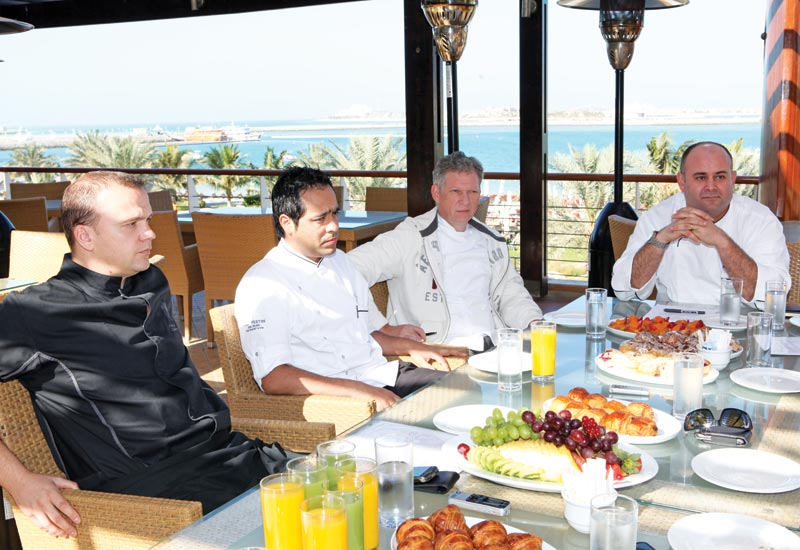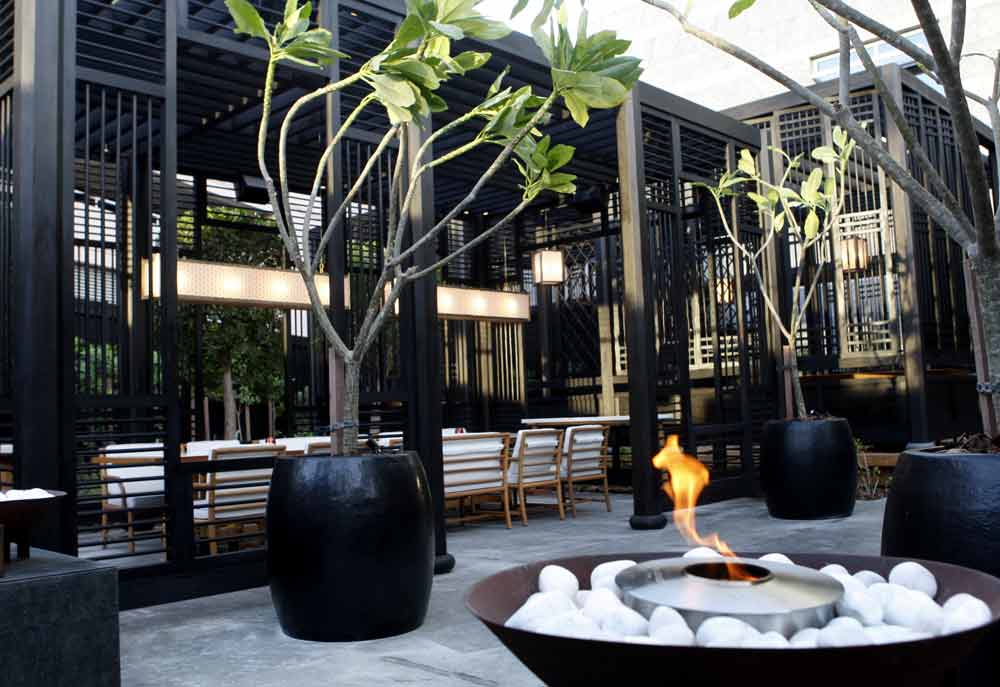 From left to right: Pierrick Cizeron, David Contreras, Michel Jost and Lloyd Cremer discuss how to tackle increasing hotel restaurant competition
From left to right: Pierrick Cizeron, David Contreras, Michel Jost and Lloyd Cremer discuss how to tackle increasing hotel restaurant competition
Challenging times
Buchholzer said that hotels had to strive to use the best quality ingredients they could afford – despite ongoing increases in the price of produce.
“Last year we experienced a big raise on fresh and dried goods, everything raised from 10-30% on average,” he reported.
But despite the added pressure on food costs, Buchholzer was adamant that this increase should not be passed on to guests.

| Advertisement |
“It’s not like you have [a supplier] raising [prices by] 30% and then you raise your menu price 30% because if you come to eat today and the cheque is AED 150 and you come to eat tomorrow and it’s AED 250 you’re not going to understand the price difference and I’m not going to come to the table and explain that our goods [have increased].
For you it doesn’t make sense that you can raise 30% overnight so this is a big management process in terms of how we have to absorb some costs and be creative to balance this with something else, so at the end of the day costs don’t go overboard,” he explained.
Pierrick Cizeron executive chef at Le Meridien Dubai, said produce had increased because of the strength of the Australian dollar and the Euro last year and that, despite drops in the Euro now, prices were still not decreasing.
Like Buchholzer, Cizeron said the guest’s restaurant experience remained of paramount importance and so he looked at solutions to rising costs that would not negatively impact upon this.
“We try to contract the maximum amount we can on a six-month to a year basis to try to avoid this fluctuation but definitely there is a lot of [increases],” said Cizeron.
“For us we are trying to cut costs as long as it doesn’t affect the customer experience. Let’s go deeply into the organisation and see how to absorb these increases of costs and definitely we are driven by the guest experience and we should not have the guest feeling it.”









 Search our database of more than 2,700 industry companies
Search our database of more than 2,700 industry companies









